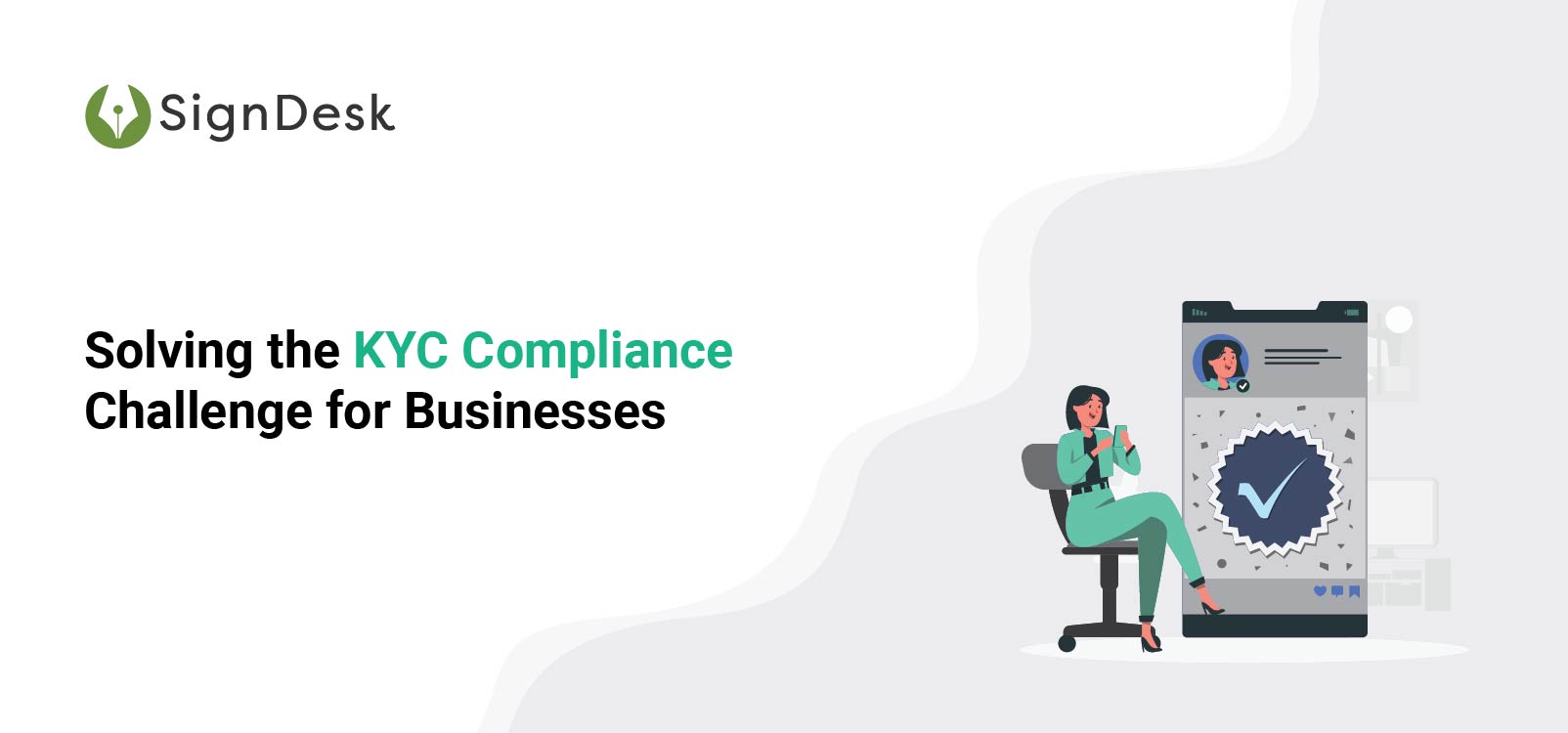
What is ‘Know Your Customer’ or ‘KYC’?
Confirming a customer’s identity prior to his/her onboarding is important procedure businesses of all sizes need to follow. Through KYC compliance, businesses can verify & stay safe from any risk that may be entailed by maintaining business with the prospective customer.
Know Your Customer or KYC is a standard practice among businesses across various industry segments to safeguard the company’s finances & privacy. It is a procedure that enables quick confirmation & verification of a customer’s authenticity.
The KYC process involves verifying various facets of the proposed customer, including the validation of his/her identity card and facial biometrics, in addition to document verification.
The process can be carried out in person, with an authorized employee manually verifying the customer’s details. However, businesses are gravitating towards an AI-driven process flow that can execute KYC more efficiently. The approach introduces automation to KYC, enabling businesses to onboard large numbers of customers/clients within a short period.
Why Are KYC Checks Essential For Businesses?
KYC compliance paves the way for businesses to introduce a secure onboarding process for their customers or clients. By implementing it as one of the initial steps in the customer journey, businesses reduce the chances of risk, prevent chances of fraud, and establish a clear onboarding process for customers to associate with the business.
KYC checks are a vital process in the context of the user registration journey in businesses & it brings forth several benefits to both businesses & their customers. Know Your Customer,
- Acts as a risk management strategy: Implementing a KYC process helps businesses assess the risks associated with the possible customer relationship. This makes KYC a vital process that a business needs to implement when initiating new customer or client relationships.
KYC is essential for firms to stay away from risking their reputation & paying huge penalties by channeling illicit activities, even though they may be unaware of it.
- Establishes trust in business relationships: Following an onboarding procedure compliant with KYC regulations creates a trustworthy business environment for the customer. Also, by assessing the risks that the potential customer/client association could bring, businesses can be assured that establishing relationships with their customers does not propose any threat of fraudulent actions.
These factors facilitated by a KYC procedure make way for a better customer-business relationship.
- Prevents fraudulent financial activities: KYC compliance enables businesses to steer clear of illegal financial activities that can arise from identity thefts or user identity concealment.
KYC is designed to prevent the possibility of stolen identity through procedural checks, ensuring the business stays safe with the customer association.
What Are the KYC Requirements for Customer Onboarding?
To complete their KYC process flow, users need to provide personal information & certain documents that are essential to carry out the KYC successfully. Some primary KYC requirements used during the process include the user’s name, date of birth, address, and identity proof number.
Individuals undergoing the KYC process must also present official documents that act as proof of the user’s identity & address. The documents included are:
- Aadhaar Card
- Voter ID Card
- PAN Card
- Driving License
- Passport
- NREGA Card
NRIs would require duly attested copies of the following documents to complete their KYC:
- Passport
- Resident visa copy
For a minor’s (below ten years of age) KYC, the person (adult) operating the account must submit his/her ID proof.
The RBI provides a detailed list of eligible documents that are mandatory, as well as the ones that are exempted from KYC here.
Do Businesses Need an Automated KYC Solution?
KYC compliance is an indispensable requirement every business has to adhere to. By bringing technology into play, firms can experience significant benefits every time they carry out a customer’s KYC verification. Digital KYC,
- Paves the way for a smooth customer onboarding process
KYC compliance is an essential prerequisite for organizations to onboard their clients or customers. Through an online KYC platform, customers can get their details verified remotely, which adds convenience to the procedure, making digital KYC customer-friendly.
- Eliminates the risk of manual errors
When employees carry out the customer onboarding process, a few details may be overlooked. Through an intelligent KYC software platform, businesses can prevent errors or misses that can otherwise occur through a manual KYC procedure.
- Saves time & money
By screening potential customers via a digital platform, complete with industry-compliant regulatory standards, businesses can complete the KYC process within a fraction of the time they would need otherwise.
- Enhances operational efficiency
Digital KYC puts forth an automated client verification process that facilitates an efficient means of registering new users to the system. By maintaining a standard online KYC process, businesses can complete verifying customers in a matter of minutes, every time.
Ensure KYC Compliance With SignDesk’s Digital KYC Solution
KYC compliance is one of the important elements of an organization’s client onboarding process that ensures every new client’s details are verified before initiating business. It assists businesses in staying compliant with legal & industrial regulations and plays a pivotal role in preventing a business from attracting hefty penalties or, worse, getting blacklisted.
SignDesk’s KYC software, scan.it, is tailored to enable businesses to stay safe from fraudulent customer association by means of a digitally powered KYC solution. Firms can choose from image-based KYC, video KYC, and offline Aadhaar KYC modules that offer quick and convenient user verification solutions to onboard their customers without a hassle.